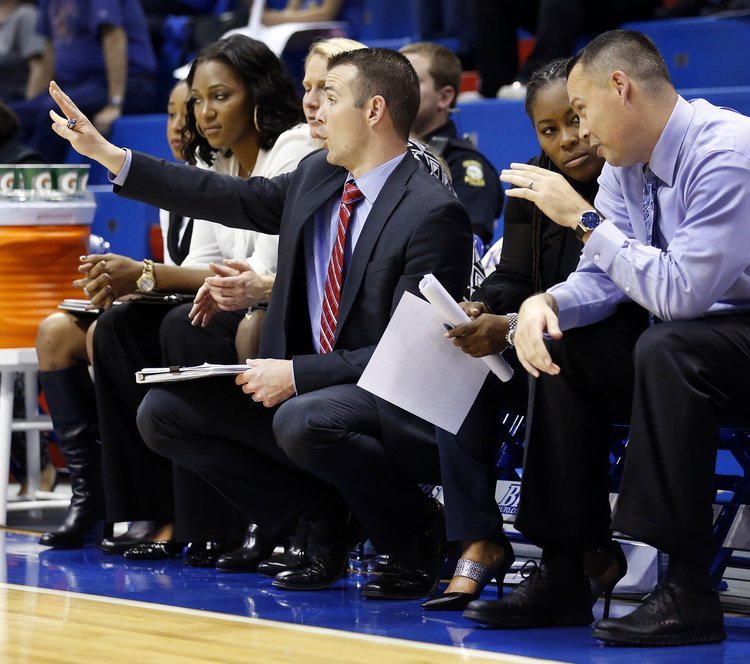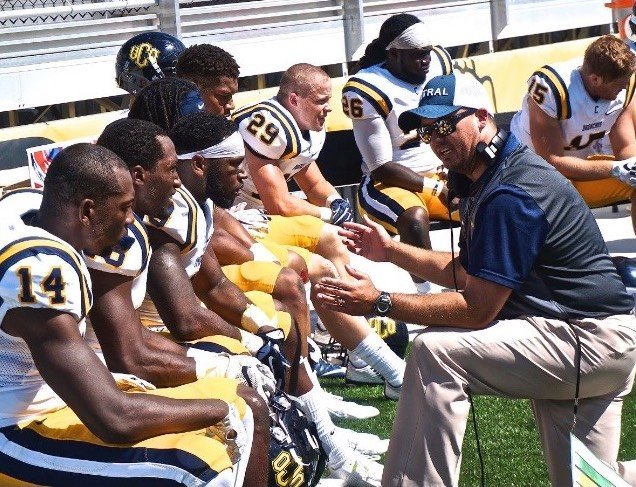A Whole New Ballgame
In 2007, Josh Herron (CEO) and Tyler Staszak (CFO & President) founded Southwind. They started their journey with the goal: to build something that they could be proud of and be able to be their own bosses.
While they had personal goals, they also had goals for the organization as a whole. They wanted the company to be a place that helped upgrade leaders and assist individuals in getting where they wanted to go both professionally and personally. This mentality of coaching people to be the best version of themselves was around since day one. However, the tactic the company uses to achieve this goal was something new to the business world.
On Southwind’s team, there are many retired athletic coaches in leadership roles to help guide the business and their teammates to success. Herron explained that the reasoning behind this idea was, “Having someone to coach you helps people see their blind spots and helps them employ tactics to be successful. Coaches understand this and know how to put those tactics into practice. Coaches can take their ability to help people progress and translate this into the business world.”
A few of the many coaches on the team include: Troy Morrell, Jeff Sims, Andy Majors, Daniel McKinney, LaDrew Murrell, Russ Pickett, and Nick Bobeck. All of these coaches hold a leadership position within Southwind. They shared how their previous background helped them be successful within their new careers and lead the teams around them.
LaDrew Murrell coached varsity football for eleven years at Shawnee Mission North, Bonner Springs High School, and Olathe High School. Before he started coaching, he played college football at MidAmerica Nazarene University. Throughout his life, he found his identity in sports and decided the reason he wanted to coach was so he could have an impact on individuals’ lives the way his coaches did on his. Even after leaving coaching sports, he continues to coach in his position as an Executive Business Coach.
Andy Majors started coaching high school football in 2006 but then moved into coaching women's basketball. He coached women's basketball at the University of Kansas from 2015 to 2019. After 13 years of coaching, Majors felt that his skill set was not being applied to its full potential and he wanted to be able to spend more time with his family. Shortly after leaving coaching, he started his new career and said that it gave him the same feeling he had his first year of coaching.
Russ Pickett coached football for 18 years. He coached at Fort Scott Community College, Benton High School, The University of Central Oklahoma (with Coach Bobeck), and Southern Arkansas University with Coach Sims. After leaving coaching he was in the sales world for two years, but Sims had told him that when the time was right he would give him a call about joining the team. When the call came, everything lined up.
Nick Bobeck also coached college football for 18 years. He coached at many different schools including Texas A&M and Navarro Community College. While at Navarro, he won a National Championship and was inducted into the hall of fame in September. His career in coaching was very demanding on his family and he decided to leave so he could focus on being a dad at a higher level. When he came to Southwind to tour, he fell in love with the energy within the company. He said that being in the team huddles took him back to the feeling you get in a locker room.
Jeff Sims coached football for 27 years. He coached at eleven different schools including the University of Indiana and Florida Atlantic University. He finished his coaching career at Missouri Southern State University in December 2020. During his career, he had four national championships appearances, five coaches of the year awards, and had 56 players go to the NFL.
Troy Morrell started coaching football at Thomas More High School in 1995 and then went to Butler Community College to coach in 1996. After four short years of working at Butler, Morrell was promoted to be the youngest head coach they ever had. He continued his career at Butler and resigned in 2014 to spend more time with his family. During his career, he led the team to 3 National Championships and was inducted into the Kansas Sports Hall of Fame in 2015.
While all the coaches come from different backgrounds they all had something in common: they all had a love to encourage the people around them to be the best they can be. Many of them wanted to leave coaching for their family but did not want to stop helping and encouraging others’ growth. At Southwind, they were able to continue doing this in a different arena and incorporated their skills to make teammates succeed at an even higher level.
Communication was one of the many concepts multiple of the coaches said they used while coaching and also found beneficial in business . Pickett talked about how over-communicating with your team is important in establishing strong and beneficial relationships. He stated that “You have to care about the people you are with and- if you do not- people can see that.”
Bobeck also touched on how the communication tactics he learned throughout coaching are something he has adapted into his new career. He talked about how on a sports team and within teams he is leading now there are many different individuals, “When working with so many different people, with different personalities, you have to communicate clearly. It is important to understand where someone comes from so you can coach them to be successful.”
These communication skills have set all these coaches apart when working with team members. They know how to understand the people around them and how to use this to motivate people to be the best version of themselves. With this constant communication and motivation, they can provide help not only for the business to grow, but for their teammates as well.
Preparation was another key in coaching that they were able to translate into the business. McKinney talked about how in coaching he always had to come up with a game plan to be successful. He said that this has not stopped in his new role, “Preparing for the day to be successful is like coming up with a game plan in sports. You have to have a plan in place that engages your team and cultivates an environment for them to grow.”
Morrell also shared that preparation tactics in coaching have helped him be prepared for the new role took on. When he was coaching, he was responsible for over 120 people. To be successful in leading all these individuals he had to be prepared, organized, and very clear about everyone's responsibility. He talked about how success is a result of preparation and the process. He talked about how in a leadership role a person needs to, “have set goals and a firm process in place to help you and your team achieve those goals.”
The preparation tactics used daily by these coaches help their jobs run smoothly and set them up to be able to tackle any problem that arises along the way. Without their background in coaching, having to successfully prepare for it, they would not be able to take on their new teams with the ease they did. LaDrew Murrell said, “when you fail to prepare you prepare to fail,” perfectly summing up the importance of preparation.
The last skill that multiple coaches touched on that makes them successful in their role is the ability to cultivate a good environment for the people working with them. Herron understood the impact coaches have on surroundings with his background as an athlete and knew that the people he brought on were crucial in cultivating the energy he wanted. When starting the organization, Herron said that he wanted, “a non-toxic high-performance work environment where people support each other and achieve together.”
Majors chose Southwind because of the energy already being created there and the relationship he had with Herron from childhood. He trusted that Herron would create a business set up for generational success. Majors understood that his role would also be contributing to the environment and he had seen the atmosphere in previous jobs take a turn and that was something he did not want to see happen again. Majors said that, “focusing on the environment is so important and that everything in the organization matters from the very top to the bottom.”
From his years in coaching, Sims also understood how the atmosphere affects a whole team. While coaching, he knew how important it was for everyone to feel supported so that they were able to succeed. Within his new role, Sims said he wanted to, “create a team environment where everyone can count on each other and be able to take people to places where they are not able to get to by themselves.” The background he has mentoring athletes helped him successfully be able to lead his team and encourage them to reach their full potential.
Southwind understood the importance of different skills coaches have and used these to their advantage to create a successful business that continues to grow. The coaches who came to work there got to put their coaching knowledge to use and while they are no longer coaching a sport, they all got to continue doing something they love.
Every coach talked to said that they liked coaching because of the sport, but that was not what they loved about it. Each one said their biggest achievement was helping their players. Each one stated that the relationships formed were the best parts of their job. Sims said that the greatest part of coaching is, “every time I see a former player on Facebook with their family or seeing a player in the NFL, I think back to when they were 18 and had no idea what they were doing with their lives and now to be able to see they made it is the best part.” These coaches have teams they are coaching still and get to continue to watch the impact they have on the young people they mentor. The compassion and heart these coaches have for not only their business but for their teams are prevalent at Southwind.
The connection these men form with the people around them can be easily described by LaDrew Murrell. “Everyone is someone's child, parent, or sibling and you need to make them feel like that when leading them. The most important thing is to treat everyone around you like they are people.”







